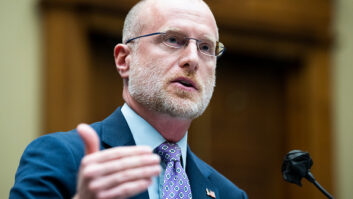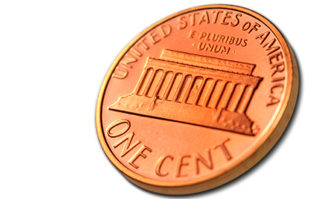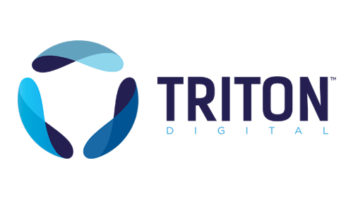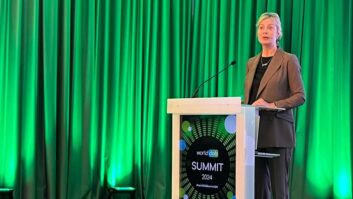Podcasting began in the early 2000s as a grassroots movement driven by alternative content, often produced in makeshift studios.
Since 2006, The Infinite Dial has tracked its growth and maturation into a mainstream media. The infinite Dial is based on research from Edison Research and Triton Digital.
[Read: Pandora, Spotify and iHeart Radio Lead in Brand Awareness]
Their most recent data suggest upticks in both numbers and diversity.
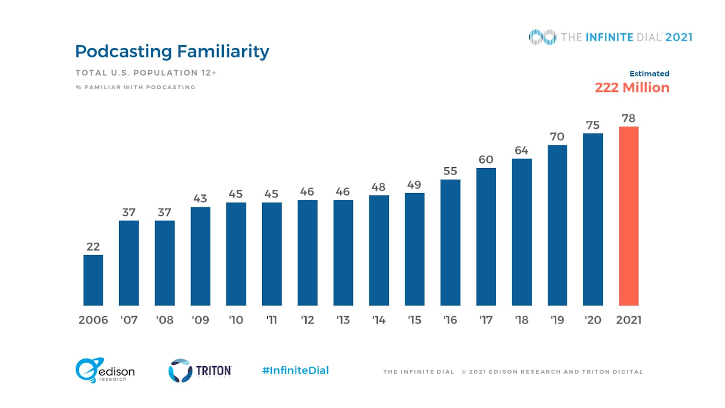
In 2006, The Infinite Dial’s data indicated 22% of the U.S. population 12+ were familiar with podcasting. That number has grown steadily to the estimated 78%, or 222 million who are aware today. Awareness and use are two different things however, but those numbers are up as well.
Podcast listening inched up from 55% to an estimated 57% for 2021, and monthly figures show an increase for both men and women, and the gender split is pretty evenly divided 50–50.
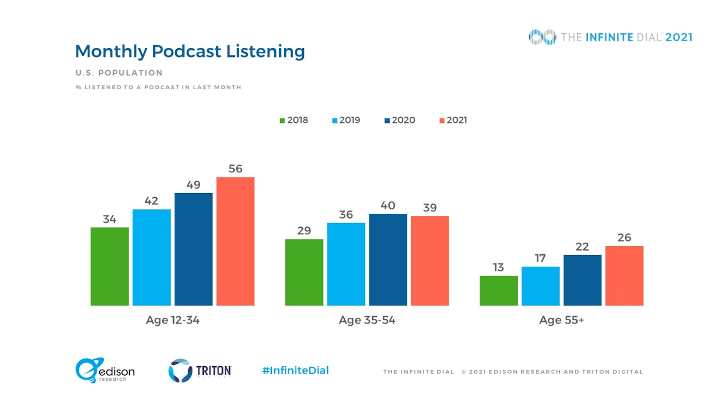
When broken down by demographics, the monthly data suggests that the 12–34 age group shows continued growth and leads with 56%. A slight drop in listenership from 40% to 39% was indicated in the 35 to 54 demographic, while those 55+ saw their numbers increase from 22% to 26%.
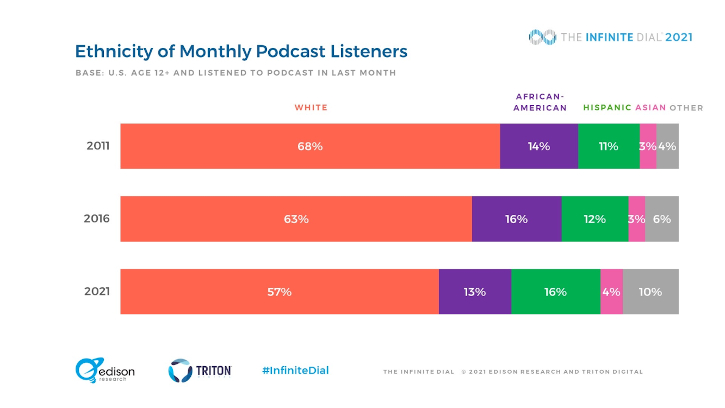
When comparing the ethnicity of monthly podcast listeners starting in 2011 through today, the data suggests that while they are still predominately white, there have been strong gains with Hispanic/Latino and Black listeners. These trends bring the overall podcast listenership more in line with the diversity of the American population.
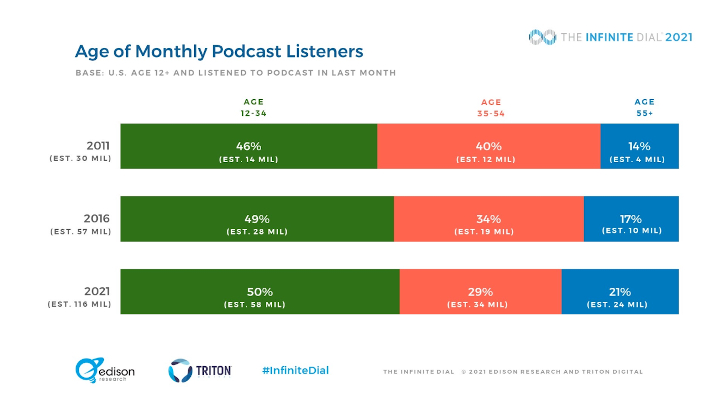
When looking at the age of monthly podcast listeners from 2011 until today, the data shows growth in the 12–34 segment from 46% to 50%, while there was significant shrinkage in the 35 to 54 group from 40% to 29%. The 55+ demographic grew from 14% to 21%.
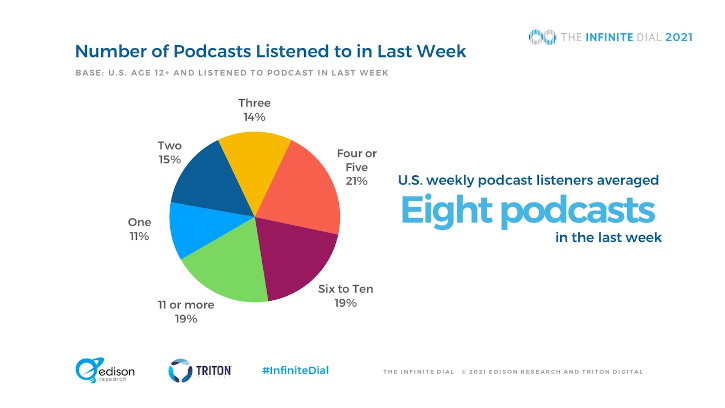
When asked how many podcasts they listened to in the last week, the answers ranged from one to 11 or more, but the average reported was eight.


